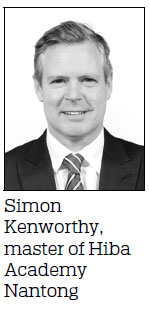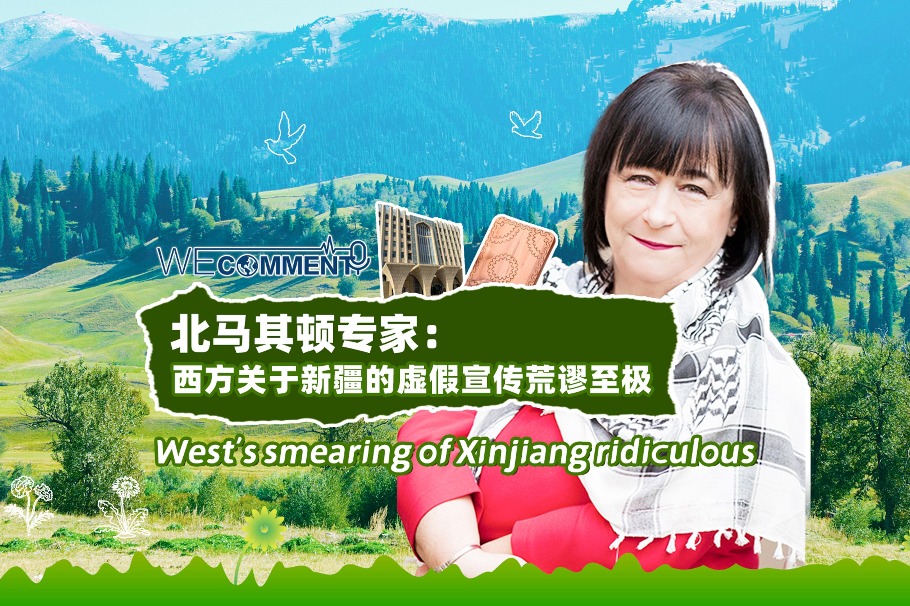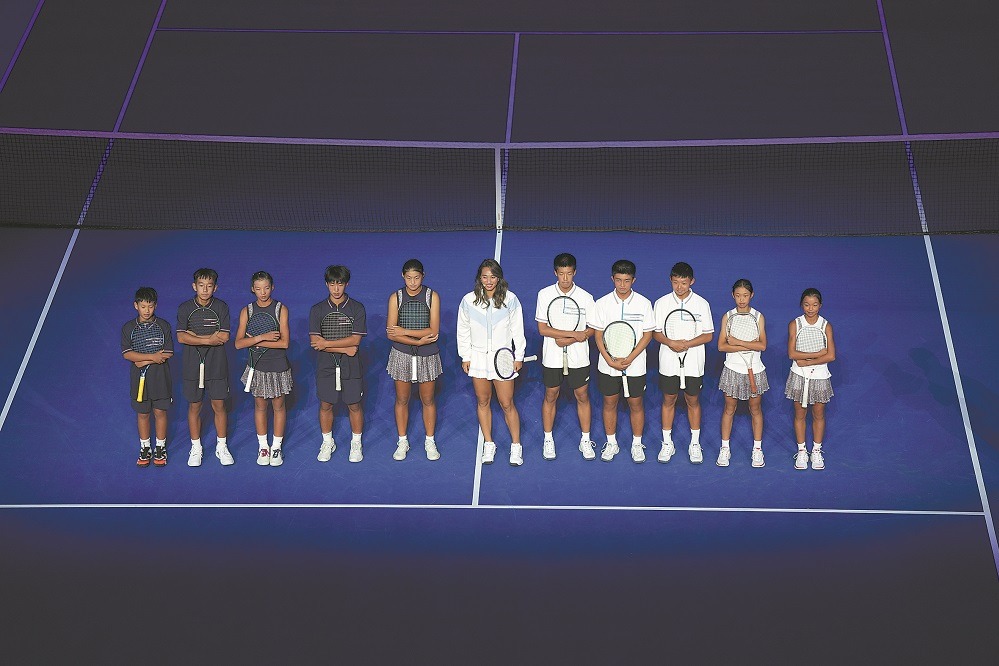Boarding at Hiba Academy Nantong bridges cultures and nurtures talent

Ethan, a 16-year-old student of mixed Chinese and British heritage, has chosen to study independently at Hiba Academy Nantong in Jiangsu province, eastern China, enrolling in the school's new international boarding program.
Driven by a desire to experience Chinese culture and foster his personal growth, Ethan hopes the experience will prepare him for his dream university and help him become more independent — all while his parents remain in the United Kingdom.
"This is an exceptional opportunity to immerse myself in Chinese culture and bridge East and West," Ethan said.
"As someone with mixed heritage, this school is the ideal place to achieve that goal."
Ethan's journey reflects the educational philosophy of Hiba Academy Nantong. As the flagship bilingual boarding school of the Wellington College Education group, the academy launched its international boarding program this year, building on Wellington College's 160-year educational legacy.
Simon Kenworthy, master of Hiba Academy Nantong, noted that the program is in step with China's changing educational landscape.
He said: "China is working to shift from a net exporter of international students to a net importer. By welcoming students like Ethan, we enrich our campus with cultural diversity, fostering mutual learning between Chinese and international students."

To help boarding students, the school has developed a comprehensive support system. "Our boarding teachers step into a parental role, with care and compassion as their primary responsibilities," Kenworthy explained.
Each boarding floor is staffed with a house parent for academic guidance, a mentor for personal development, and a matron to assist with daily life.
International students also receive dedicated support from Richard Watts, Hiba's deputy head of boarding.
He organizes weekend activities such as go-kar ting, charity projects, museum visits, and camping trips. He also keeps parents updated on their child's progress and ensures academic standards remain high.
The school works to identify each student's strengths and interests. This helps them chart a clear path from university to future careers while also encouraging them to become thoughtful, contributing members of society.
"We strive to create an environment where students want to be here — because it's engaging, challenging and caring," Kenworthy said.
Hiba Academy Nantong is working with a UK organization that teaches Mandarin to 20,000 students, many of whom are drawn to Chinese culture or have cultural roots in China. Kenworthy is to deliver presentations at schools in London and Norwich, followed by rigorous interviews and academic assessments to ensure quality candidates.
As part of the global Wellington College network — with campuses in China, India, Thailand, Indonesia, and soon the United States — Hiba Academy Nantong upholds the same ethos and values, placing an emphasis on holistic education.
"Holistic education nurtures the mind, body, and spirit — what is also called 'the three H's: head, heart, and hands," Kenworthy said.
The "head" represents academic learning, which is the sole focus at many schools. The "heart" addresses students' social and emotional needs — essential, since a child who lacks love and support will struggle to succeed academically. The "hands" refer to physical engagement, as research shows that their education is less effective without physical activity, according to Kenworthy.
Academically, the school offers the A-Level curriculum — one of the world's most widely recognized international qualifications, similar to China's Gaokao (the national college entrance examination). It prepares students as they apply to universities around the world.
The school's English-speaking environment, both in the boardinghouse and classroom, also helps Chinese students improve their English language skills, helping to increase their chances of admission to top universities.
Beyond core subjects like Chinese and mathematics, the school places equal value on dance, music, sports, and art. It has also introduced the Duke of Edinburgh's Award, an outdoor education program that encourages students to challenge themselves through hiking, mountain climbing, and community service.
Hiba Academy Nantong also integrates technology into its curriculum. "We teach AI skills from Grade 3 onward, using software that customizes lessons to individual needs," Kenworthy said.
A "traffic light system" governs AI use: green for creative tasks where AI can be freely used, orange for work requiring citations, and red where it is not permitted. "AI can also act as an after-hours tutor, allowing students to review lessons in their dormitories," he added.
Grounded in cultural integration and holistic learning, Hiba Academy Nantong's international boarding program creates a vibrant community where students from China and around the world learn and grow together.
Within the program, academic challenges go hand-in-hand with personal discovery, empowering students to develop the confidence, empathy, and global perspective needed to shape their own futures.
Today's Top News
- Handover and commissioning of third aircraft carrier not far away, ministry says
- Xi attends grand gathering in celebration of Xinjiang Uygur autonomous region's 70th founding anniversary
- China refines workplace safety, disaster response
- A vivid example reflects wisdom of China's governance
- A vital trade hub to connect central Asia
- China won't seek special treatment in WTO pacts































